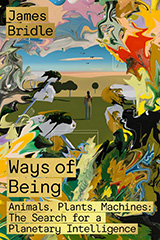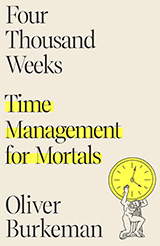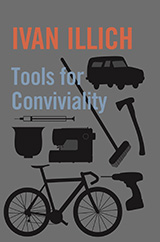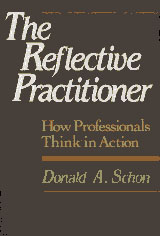Favorite books of 2022 (and 2021)




It’s the end of 2022, and I usually enjoy recounting my past year by conducting a quick review of my annual reading. There’s something about the experience of reading a book that imprints itself on the mind, serving as a waymarker for personal history. Indeed, I often find it easier to remember years by recounting what books I was reading at the time. Books are like thematic anchors in a sea of thoughts and memories; their length and physicality (I like paper books) have a kind of mnemonic gravity.
I failed to account for my reading history in 2021, so this post is going to highlight a few favorite books from both 2022 and 2021. I’ve tacked the full list of everything I read at the bottom. (I also maintain a growing list of my lifetime favorites or most-influential books on my reading page.)
2022 favorites
I have several favorites from the past year, but I’m only highlighting two books here. Other notable mentions in non-fiction include Patterns of Software and Finite and Infinite Games. In fiction, I really enjoyed Einstein’s Dreams, as well as Vernor Vinge’s True Names, one of the founding stories of the “cyberpunk” genre.
Ways of Being by James Bridle
This is a tough book to nail down, as Ways of Being is a beautiful traipse through so many disparate topics, all broadly exploring the nature of intelligence and how our understanding of intelligence affects our relationship with the natural world. The book acts as a provocation to seek and see intelligence in relationships between actors in an environment, rather than as an inherent set of atomic properties that either do or do not exist within specific entities or beings within an environment. Bridle writes:
This, then, is how we might become aware of real intelligence: that is, the kind that exists everywhere and between everything. It is made evident not by delineating and defining, not by splitting, reducing, isolating and negating, but by building, observing, relating and feeling. Intelligence, when we perceive it at play in the world, is not a collection of abstract modes: a concatenation of self-awareness, theory of mind, emotional understanding, creativity, reasoning, problem-solving and planning that we can separate and test under laboratory conditions … Rather, intelligence is a stream, even an excess, of all these qualities, more and less, manifesting as something greater, something only recognizable to us at certain times, but immanent in every movement, every gesture, every interaction of the more-than-human-world.
Bridle uses this definition of intelligence to include artificial intelligence into the discussion, both as a valid form of non-human intelligence, and as a lens for viewing and understanding other non-human (e.g. animal and vegetable) intelligences in our ecosystem. By viewing AI not as simply a creation of impending doom or planetary exploitation, one that may replace humans—perhaps even superceding us—we can instead flip our understanding on its head, seeing AI as “another flowering, wholly its own invention, but one which, shepherded by us, leads us to a greater accommodation with the world.” Given current popular discourse around AI—particularly around diffusion models for generating images (e.g. DALL-E) and large language models for generating long-form text (e.g. GPT3)—I feel this book is critically important as a way for viewing these technologies in a different light.
Despite the massive problems it grapples with—climate change, species extinction, ecological destruction, growing income inequality—Ways of Being espouses a philosophy that encourages optimism in the face of it all.
Find Ways of Being on Open Library.
Four Thousand Weeks by Oliver Burkeman
Four Thousand Weeks is the ultimate not-time-management time management book—a kind of pragmatic application of the philosophy of Zen Buddhism without the Buddhism part. I loved it. As a long-time Zen practitioner, and someone who generally despises typical the time-management/productivity/self-help genre of books, this was the book for me.
The premise is deceptively simple: A mortals, our time on Earth is finite, and our quest to “make the most” of our limited time often actually gets in our own way. Time management tricks and productivity hacks are a kind of red herring for what truly matters, leading us down a path of trying to cram more and more into each fleeting moment. But our mortality means we can’t possibly do everything we want to do, nor will we ever achieve some Nirvana-like state free of problems or things to do. Burkeman writes:
Once you give up on the unattainable goal of eradicating all your problems, it becomes possible to develop an appreciation for the fact that life just is a process of engaging with problem after problem, giving each one the time it requires- that the presence of problems in your life, in other words, isn’t an impediment to a meaningful existence but the very substance of one.
This insight is profoundly liberating. By recognizing our finitude and the absolute smallness of our being, we free ourselves from trying to be more than who we truly are, or do more than we are ever possibly capable of doing. We let go of the anxiety of constant achievement, of chasing after the next experience or next task. We can just be.
Find Four Thousand Weeks on Indiebound.
2021 favorites
2021 was the year I really started diving into the “Tools for Thought” space, and thinking about how our (computational) tools affect our humanity in a depth I haven’t explored since graduate school. The books here reflect this theme. They’re not so much my favorite reads (they’re actually both difficult to read), but they are books that I find myself thinking about frequently.
Tools for Conviviality by Ivan Illich
This book has had substantial influence on my ways of thinking about software and software development. I’ve since revisited it multiple times, and I’m constantly mining it for quotes. Tools for Conviviality is a must-read for anyone interested in how technology and philosophies driving the development of new technology can either enhance or impede human liberty and autonomy. Illich writes:
Tools are intrinsic to social relationships. An individual relates himself in action to his society through the use of tools that he actively masters, or by which he is passively acted upon. To the degree that he masters his tools, he can invest the world with his meaning; to the degree that he is mastered by his tools, the shape of the tool determines his own self-image. Convivial tools are those which give each person who uses them the greatest opportunity to enrich the environment with the fruits of his or her vision.
This book is not perfect; in fact it’s downright frustrating at times, but the ultimate premise that tools shape our environment, and can either constrain or empower us is absolutely true. Is it somewhat of a polemic on industrialization and capitalism? Yes. Does Illich fail to provide any realistically achievable solutions against the problems he rails against? Absolutely. Read it anyway.
Find Tools for Conviviality on Open Library.
The Reflective Practitioner by Donald Schön
It’s a valuable book for anyone interested in theories of knowledge work or mastery of a practice, and that’s why I have it in my list. I enjoyed it, but didn’t love reading it. Nevertheless, I find myself referring to it regularly. It’s useful if you’re designing or building tools for thought or creative tools or trying to build practices of sharing knowledge in professional organizations. If I were to put it succinctly: We know much more than we can say. As such, tacit knowledge plays a much more critical role in professional work than we often give it credit for.
Schön argues that much of the most important and pertinent work practiced by professionals in any field cannot be described or explained or even practiced by simply following rational thought and well-described theories. Instead, professionals make heavy use of “reflection-in-action,” tacit knowledge and improvisation. Through reflection-in-action, a professional will construct theories about a specific problem “on the fly,” and will often feel their way through a problem—thinking through doing—using tacit knowledge acquired through prior experience as their primary guide.
I found myself thinking often of George Leonard’s book Mastery, which draws from the practice of Aikido to describe the path to mastery of an art or craft. Many of the same practices of mastery apply to professional work. Indeed, Schön, heavily promotes the concept of mastery through dedicated practice of a discipline, where through repeated, continual practice we can build innate, tacit, embodied knowledge that helps us tackle the messy problems of the world.
Find The Reflective Practitioner on Open Library.
Everything else I read in 2022 and 2021
2022
- The Ministry for the Future by Kim Stanley Robinson
- Thinking in Systems by Donella Meadows (re-read)
- Patterns of Software by Richard Gabriel
- Ways of Being by James Bridle
- The Dream Machine by M. Mitchell Waldrop
- Thoughts on Design by Paul Rand
- How Buildings Learn by Stewart Brand
- The More Beautiful World Our Hearts Know is Possible by Charles Eisenstein
- The Clock of the Long Now by Stewart Brand
- Reading Writing Interfaces by Lori Emerson
- Four Thousand Weeks by Oliver Burkeman
- Understanding Computers and Cognition by Terry Winograd
- Einsten’s Dreams by Alan Lightman
- Staff Engineer by Will Larson
- Where Good Ideas Come From by Steven Johnson
- Finite and Infinite Games by James Carse
- Mastery by George Leonard (re-read)
- True Names by Vernor Vinge
- Computer Power and Human Reason by Joseph Weizenbaum
2021
- The Loneliest Americans by Jay Caspian Kang
- Tools for Conviviality by Ivan Illich
- Working in Public by Nadia Eghbal
- Platform Ecosystems by Amrit Tiwana
- The Nature of Technology by Brian Arthur
- The Reflective Practitioner by Donald Schön
- Evocative Objects by Sherry Turkle
- What Technology Wants by Kevin Kelly
- Weaving the Web by Tim Berners-Lee
- How to Take Smart Notes by Sönke Ahrens
- Permutation City by Greg Egan
- Red Mars by Kim Stanley Robinson